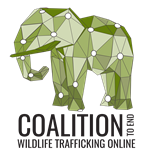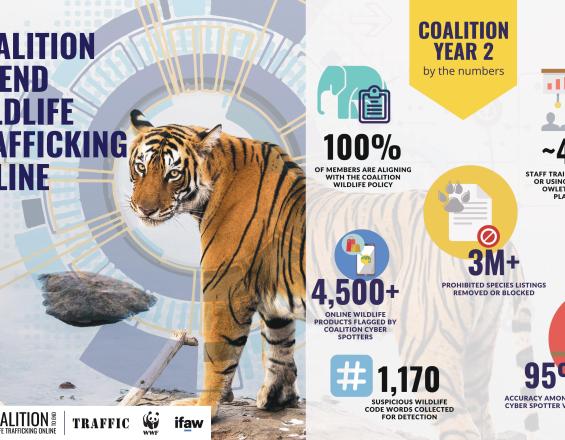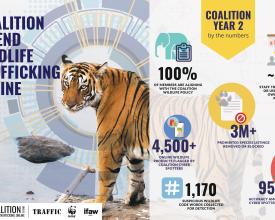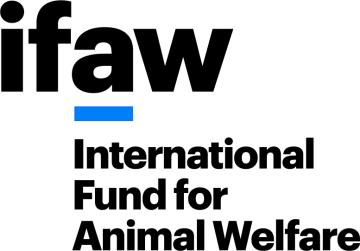
Coalition to End Wildlife Trafficking Online

Advances in technology and connectivity – combined with rising power and demand for illegal wildlife products – have increased the ease of exchange from poacher to consumer across continents. This has created largely unregulated online markets for criminals to sell illegally obtained wildlife and their products. Products derived from species like elephants, pangolins, and marine turtles, as well as live tiger cubs, reptiles, primates and birds for the exotic pet trade, are readily available for purchase online. The Coalition to End Wildlife Trafficking Online brings together e-commerce, search, and social media companies across the world in partnership with WWF, TRAFFIC and IFAW to help keep endangered species offline and in the wild. The Coalition works with companies to strengthen prohibited wildlife policies, provide staff training to detect prohibited wildlife content, educate users about the issue and how to report suspicious listings, enhance automated detection, and share learning across platforms.
Context
Challenges addressed
Location
Impacts
The Coalition launched on March 7, 2018 with 21 companies and as of December 2020, there are now 38 companies. From its inception, the Coalition grew the visibility of the issue of wildlife trafficking online and role of the private sector in combatting it through key global fora including the London Conference on Illegal Wildlife Trade (2018), INTERPOL/ IFAW Cyber-Enabled Wildlife Crime Workshop (2018), CITES Conference of the Parties 18 (2019), INTERPOL Wildlife Crime Working Group (2019), First High Level Conference on Illegal Wildlife Trade in the Americas (2019), Crime Stoppers International Conference (2019) and INTERPOL’s Debriefing on Operation Thunderball against Wildlife Smuggling. These events focused on catalyzing important policy changes and encouraging multi-sector collaboration with NGOs, policy makers and law enforcement.
In the Coalition’s latest progress report (dated March 2020), the Coalition companies reported removing or blocking over 3 million endangered species listings from their platforms. This resulted from strengthened wildlife policies, an increase in staff ability to detect illegal wildlife products, regular monitoring and data sharing from wildlife experts, reports sent in by volunteers through a Cyber Spotter program, enhanced algorithms resulting from key search word monitoring and collation as well as shared learning.


